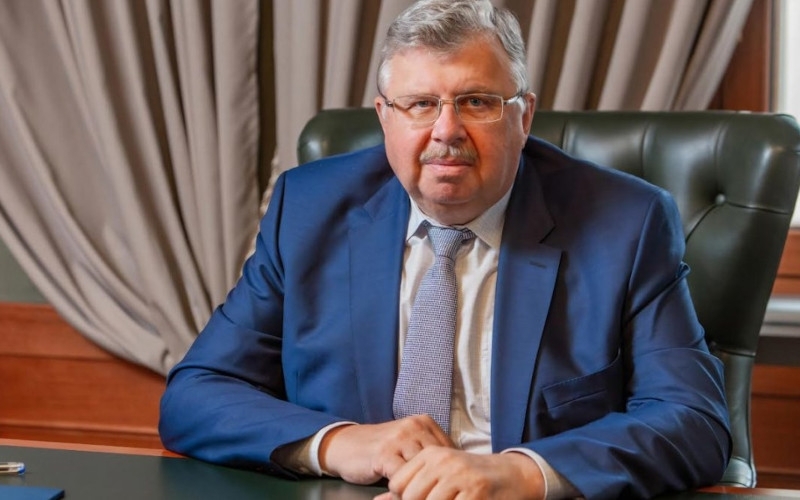
On November 3, 2022, Olga Chernokoz, General Director of the “Regions of Russia” media holding, of non-profit partnership Regions of the XXI Century, and Andrey Belyaninov, Secretary General of the Eurasian Peoples' Assembly, signed a cooperation agreement. As a new member of the Board of Trustees of the magazine “Regions of Russia: National Priorities”, Andrey Belyaninov spoke about the Assembly’s mission and the regional vector of public diplomacy.
Olga Chernokoz: Andrei Yuryevich, what is the main task facing the Assembly?
Andrei Belyaninov: The Eurasian Peoples' Assembly is an International union of non-governmental organizations. Our main goal is to assist states in the formation of a fundamentally new international agenda, a holistic integration model in the name of establishing peace and harmony. To this end, we seek to enhance the role and importance of multilateral public diplomacy, dialogue formats for achieving the development goals facing the peoples and humanity. The Assembly is a platform for the development and implementation of significant initiatives in culture, education, arts and crafts, and creative industries.
– What projects of the Assembly do you consider flagship?
– For many years, the Assembly has been holding the International Documentary Film Festival “WON TOGETHER”. Once it was founded by the outstanding domestic film director Vladimir Menshov. Festival’s focus is on films that unite people and nations around the values that made it possible to win the Great Patriotic War. On November 19, 2022, the final part of the competition started in Volgograd, on the day of the 80th anniversary of the start of the Soviet counteroffensive near Stalingrad. We are grateful to the President of Russia V.V. Putin for welcoming words to the participants. In these words, he specifically noted that our film forum is rightfully considered one of the most representative and authoritative in the field of documentary cinema. In Volgograd, the festival chose an experimental format for holding competitive screenings at universities, and the main audience was students from the region's leading universities. Out-of-competition programs were held in cinemas and public spaces of the hero city. Considering the public interest, it was decided to use this experience next year as well. We intend to continue to integrate smart and kind cinema into youth policy, to tell about what is happening in the world through art.
– What new ideas and projects are the Assembly launching?
– In July, the Eurasian Peoples’ Assembly held the XXI International Public Forum for the Preservation of Historical Memory. On its sidelines, we presented a new project for the creation of the Association of the descendants of the participants in the Battle of Stalingrad. It considers the positive experience of another project of the Eurasian Peoples' Assembly - the Association of Panfilov's descendants - those soldiers of the Kazakh divisions of the Red Army who stopped the Wehrmacht in the winter of 1941 on the outskirts of Moscow. The memorandum on the creation of the Association of the descendants of the participants of the Battle of Stalingrad was signed at the festival "WON TOGETHER" in Volgograd. Ahead is a lot of work to find and unite the relatives of the defenders of the city on the Volga - citizens of Russia, CIS countries and far abroad. Regardless of what state they live in today, their blood contains the genetic code of the victorious people. These are inextricable bonds that bring people together on the basis of the memory of the feat of their ancestors, those spiritual and moral values that helped them survive in the most terrible war of the 20th century.
– The Eurasian Peoples’ Assembly is a partner of UNESCO. What opportunities for international cooperation does the sphere of culture open up?
- The sphere of culture is that area of socially useful activity that in fact accumulates all material values, all the additional product that global humanity creates. We pay a lot of attention to economics and politics, often forgetting that these both are based on and ultimately serve the values and meanings that are produced and supported by culture. This opens up great opportunities for the use of tangible and intangible assets of culture for the purpose of truly sustainable development of countries and peoples. The cultural capital of society as a whole is greatly underestimated, a reasonable approach to capitalization issues here creates centers of concentration of intellectual and economic resources, gives new impetus to socio-economic progress. For example, together with UNESCO, the Assembly supports the project of creating the International Epos Center of the Eurasian Peoples in Yakutsk as a platform for studying and disseminating cultural and social practices associated with this cultural phenomenon. They are a bottomless source of ideas for the creative and service industries, which are increasingly expanding their share in the modern economy. I'm not talking about the social significance of culture as a universal language - the language of beauty and harmony, intuitively, without translation, understandable to all people of the world.


